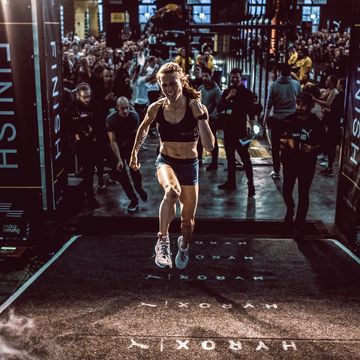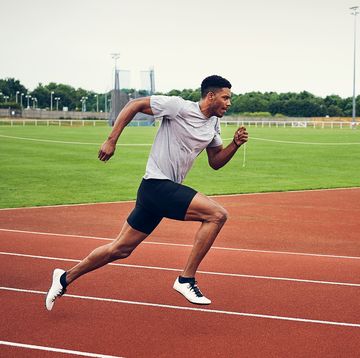With the rise of social media and advances in health tech, we all want quick, easy rules for fast results. The majority of runners who contact me for advice want support in achieving optimal performance, but over half come into the clinic with the idea that the only way they can achieve this is through dietary means that will help them to lose weight.
Is losing weight really the answer?
If you have excess body fat, losing some of it can – within reason – improve your running performance. But there’s a lot to consider. First: understand your body type. Not everyone who runs is going to be long-limbed with naturally low body fat, as often seen in the elites. This body type may be advantageous for running, but it doesn’t mean it’s the only body type that can run. Runners come in all shapes and sizes. So, try to be realistic about your body size and composition. Being lighter doesn’t always mean faster, especially if you push your body to a place where it starts to preserve energy and work against you. Many of the runners I work with are already at the optimal set point for their body, but the belief that losing weight or achieving a certain body ideal will make them abetter runner can lead to dysfunctional behaviours.
What happens when you lose weight?
When you over-restrict your nutritional intake or create too big a deficit, there may be initial changes to your body mass, but if it’s rapid, the majority of it is muscle, not body fat. Muscle mass weighs more than body fat, but it takes up less space and generates more power and speed. It’s also metabolically active; this is the component to preserve.
Also, when you create too big a deficit or try to drop your weight below your natural set point, the body starts going into compensatory behaviours and slows the metabolism to preserve energy. That’s why reducing your energy intake doesn’t always result in weight loss and can cause you to hold on to more fat.
What is low energy availability?
When you’re in low energy availability and preservation mode, there’s not enough energy left after removing what the body needs for activity to support your biological function. If this situation becomes chronic, it can result in a rise in the stress hormone cortisol, which can have negative consequences on health and performance.
Signs include recurrent tendon This plan will get you round your first marathon menstrual function Nutrition for runners: What you need to know.
How do you improve performance?
You need to consider your training, nutrition and body composition. Providing your body with the appropriate nutrition will help you to achieve the right body composition for you. Being leaner but not necessarily lighter can improve your performance because lean muscle mass generates more power and speed. But be careful not to drop your body fat too low.
So, ideal race weight is the place where your body can work optimally and sustainably. It’s the ability to train consistently, with no hiatus for injury, illness or fatigue. It’s where you provide your body with sufficient energy to recover and adapt. This all leads to improved performance.
Renee McGregor is a leading sports dietitian with over 20 years’ experience Visit her website, reneemcgregor.com













